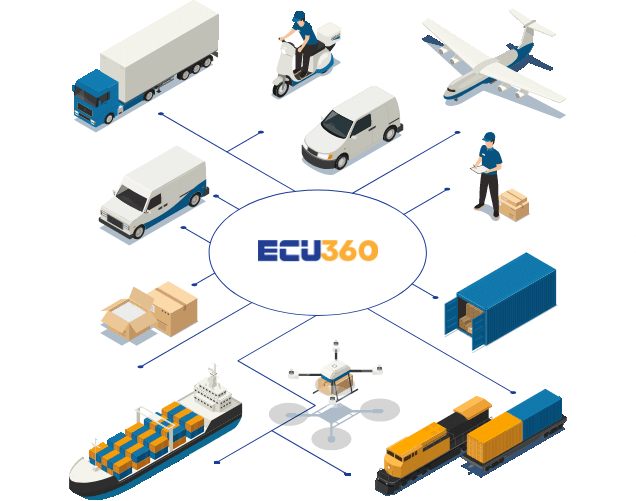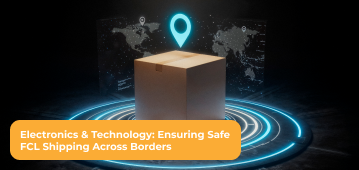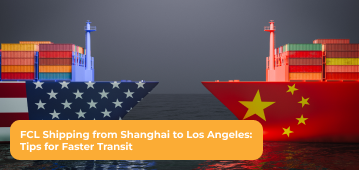Navigating the E-commerce Fulfillment Maze: A Comprehensive Guide
Introduction
In today’s fast-paced e-commerce landscape, the fulfillment process is critical to ensuring exceptional customer experiences. With growing consumer demands for timely delivery, precise order fulfillment, and competitive pricing, businesses are facing numerous challenges in the world of online shopping. This comprehensive fulfillment guide will unravel the strategic ways to help you navigate the complexities of the e-commerce fulfillment process.
What is E-commerce Fulfillment?
E-commerce fulfillment includes the entire process of handling customer orders and ensuring they are delivered. It covers receiving and storing inventory, picking and packing orders, generating shipping fulfillment labels, and coordinating deliveries. Efficient e-commerce fulfillment ensures customer satisfaction and builds brand loyalty, fueling business growth.
Order Fulfillment Process:The order fulfillment process begins when a customer places an order. It includes verifying order details, checking inventory availability, picking and packing products, generating shipping labels, and organizing deliveries.
E-commerce Logistics: E-commerce logistics involves managing the flow of information and goods from suppliers to customers. It encompasses transportation, warehouse fulfillment, and e-commerce inventory management.
Fulfillment Solutions:There are various fulfillment solutions available, including in-house fulfillment, third-party fulfillment, and drop shipping. Each has its own advantages depending on the size of the business, product type, and order volume.
E-commerce Supply Chain:The e-commerce supply chain is the network of organizations involved in creating, distributing, and selling products. This chain includes suppliers, manufacturers, distributors, retailers, and customers.
Overcoming Fulfillment Challenges:The key fulfillment challenges that many e-commerce companies face include managing inventory, ensuring accurate orders, avoiding shipping and delivery delays, and handling returns. Streamlining these areas is crucial for retaining customer satisfaction.
Best Strategies for E-Commerce Fulfillment
- Optimize E-commerce Inventory Management:Properly tracking your inventory helps avoid overstocking and prevents stockouts. Utilize an inventory management system to track product levels, monitor demand, and optimize replenishment processes.
- Implement Efficient Order Processing:Keep your order processing in e-commerce streamlined to reduce errors and processing time. Consider using automation or third-party fulfillment services for smooth order execution.
- Choose the Right Fulfillment Solution:Evaluate your business needs and select the fulfillment strategy that aligns with your goals. Factors to consider include cost, scalability, and service level agreements.
- Optimize Shipping:Enhance e-commerce shipping solutions by negotiating rates with carriers, choosing between ground, air, or expedited shipping, and applying strategies to reduce shipping costs.
- Leverage Technology:Use technology like warehouse management systems (WMS), e-commerce order management systems (OMS), and transportation management systems (TMS) to increase efficiency and visibility in the e-commerce fulfillment process.
Role of Technology in E-commerce Fulfillment
Modern e-commerce fulfillment heavily relies on technology. Advanced solutions such as AI, machine learning, and automation can streamline operations, improve accuracy, and reduce costs. AI-enabled systems help optimize e-commerce inventory management, predict demand, and automate repetitive tasks, improving overall fulfillment optimization.
The Significance of Customer Satisfaction
Customer satisfaction is a major success driver in e-commerce. Efficient fulfillment solutions ensure customers receive their orders on time, in perfect condition, and as expected. A positive fulfillment experience fosters customer loyalty and drives repeat business.
Conclusion
E-commerce fulfillment is a complex process that requires careful planning and execution. Businesses can succeed by understanding the core components of fulfillment, implementing effective strategies, and leveraging technology. ECU Worldwide provides comprehensive global e-commerce fulfillment, including warehouse fulfillment, order fulfillment, and transportation. With our expertise and dedication to fulfillment best practices, we can help you navigate the complexities of e-commerce logistics and achieve your business goals.
Like





Comments